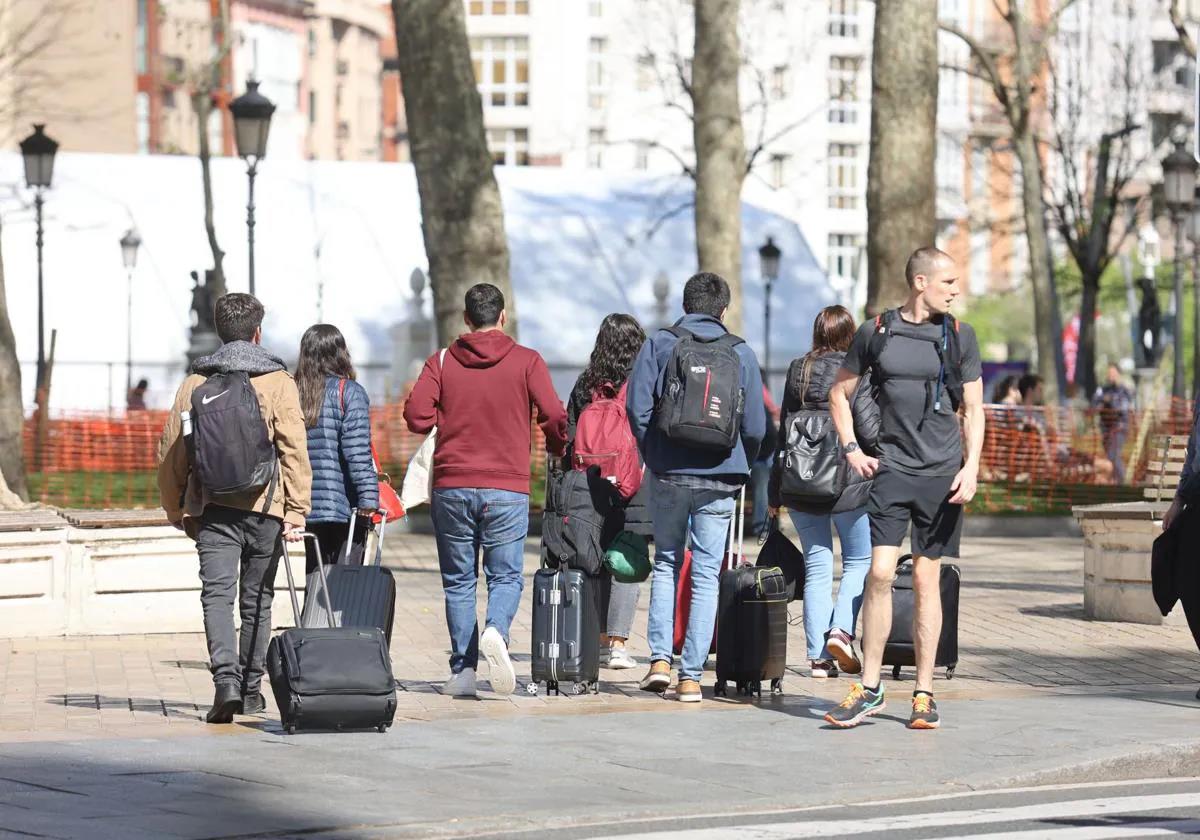Spain opens case against Airbnb for listing 'thousands of illegal ads' on its booking platform
The ministry for consumer affairs had warned the global tourist accommodation portal to remove this advertising "immediately", although without success
The siege on tourist accommodation in Spain is tightening. The national ministry of social rights and consumer affairs has decided to open a disciplinary case against Airbnb, the leading holiday rental booking platform, after warning last June of the obligation to immediately remove "thousands of listings" featuring illegal advertising, without success, as confirmed to this newspaper by sources from the ministry.
The head of the department sent a request for information in June to this platform to obtain more data on the homes advertised because of suspicions that they were violating article 47 of the consumer protection law. Minister Pablo Bustinduy said, "No company, no matter how big or powerful, should be above the law, especially not in the housing market."
If a serious infringement is detected, the fines imposed will be up to 100,000 euros or between four and six times the illicit profit obtained. Months after the start of the investigation and after verifying that the advertisements have not been withdrawn, the ministry has initiated disciplinary proceedings against this platform for failing to solve the problem. The initiation of the proceedings now opens a period for the processing of the definitive case file and the subsequent resolution by the consumer affairs department. The opening of this case file "does not prejudge its final outcome", the ministry explained.
Appeal
Airbnb responded to the dossier by saying that it "profoundly disagrees" with this decision and indicated that it will appeal it. Sources from the platform told this newspaper that the ministry "has circumvented the legal processes and has used an indiscriminate methodology". In addition, the ministry "has deliberately ignored the rulings of the Spanish Supreme Court and the Court of Justice of the European Union, which have made it clear that not all ads on Airbnb require a licence number".
Last week, Bustinduy announced an investigation into large operators of holiday rental properties for potential deceptive practices. This investigation is aimed at companies that manage hundreds of holiday homes in different autonomous communities posing as private individuals. Another investigation is also open against several real estate agencies that have allegedly carried out abusive practices against tenants in the management of rentals, such as forcing them to pay a commission for the management of the rental, to sign temporary contracts without justifying the temporary nature of the contract, or to include unfair clauses for consumers.
"There are thousands of families living on the edge in our country because of housing, while a few get rich with business models that drive people out of their homes," said the minister.
90% are illegal
The problem is significant, as in many cities the supply of flats for long term rentals has been reduced by tourist housing platforms, which has increased prices. And it is even more serious when the government estimates that more than 90 per cent of the flats advertised on these platforms do not comply with the regulations.
Therefore, if the accommodations are illegal, "their advertising would also be illegal", and "it is up to the ministry to pursue them, inspect them and, if necessary, sanction them".
Some of the cities most stressed by the housing problem, such as Madrid and Barcelona, have begun to impose measures to identify illegal advertisements, although with little impact for the moment. The minister of housing, Isabel Rodríguez, announced a few months ago the creation of a state platform to collect data on all tourist accommodation, but it will not be ready until next spring.

